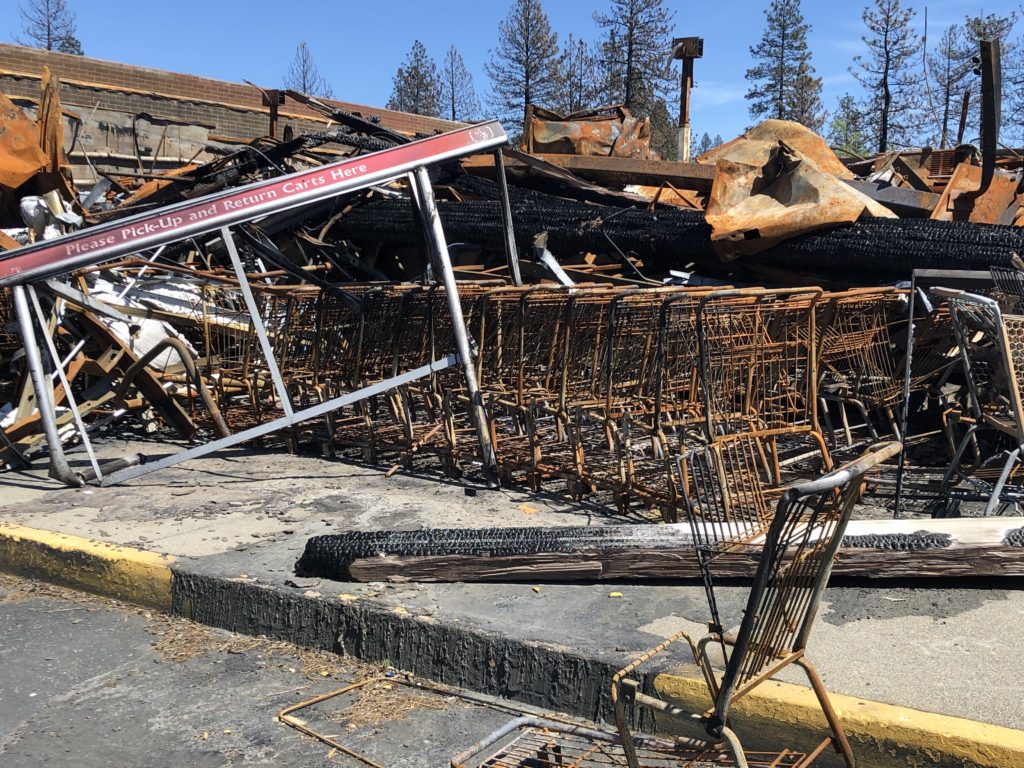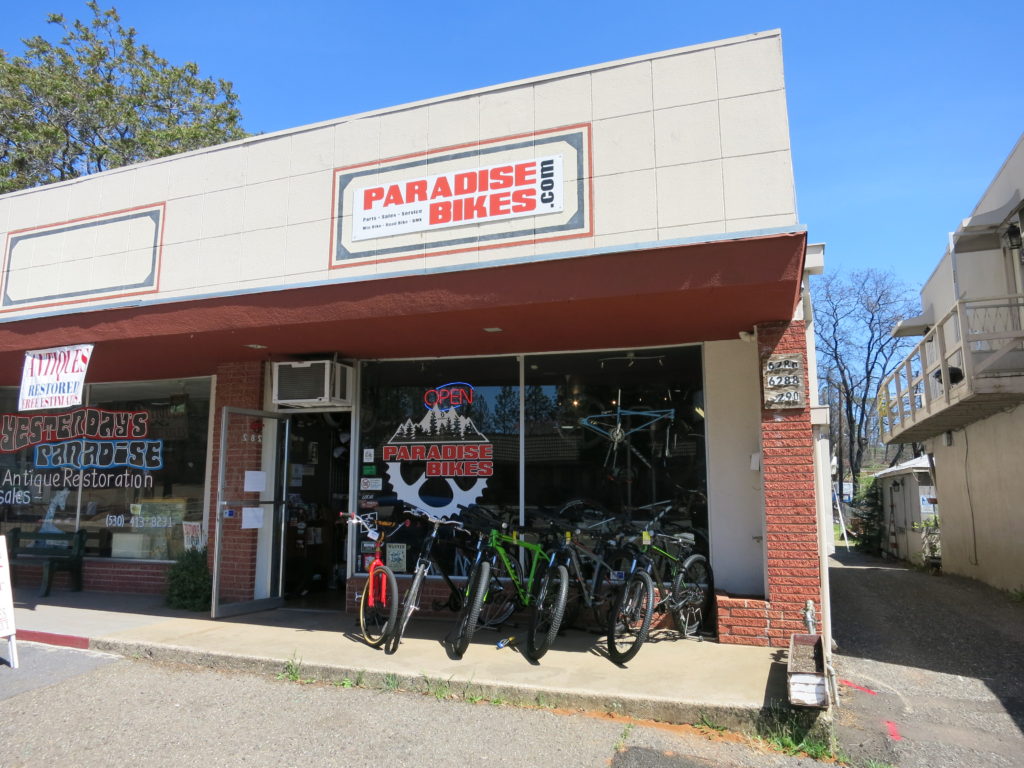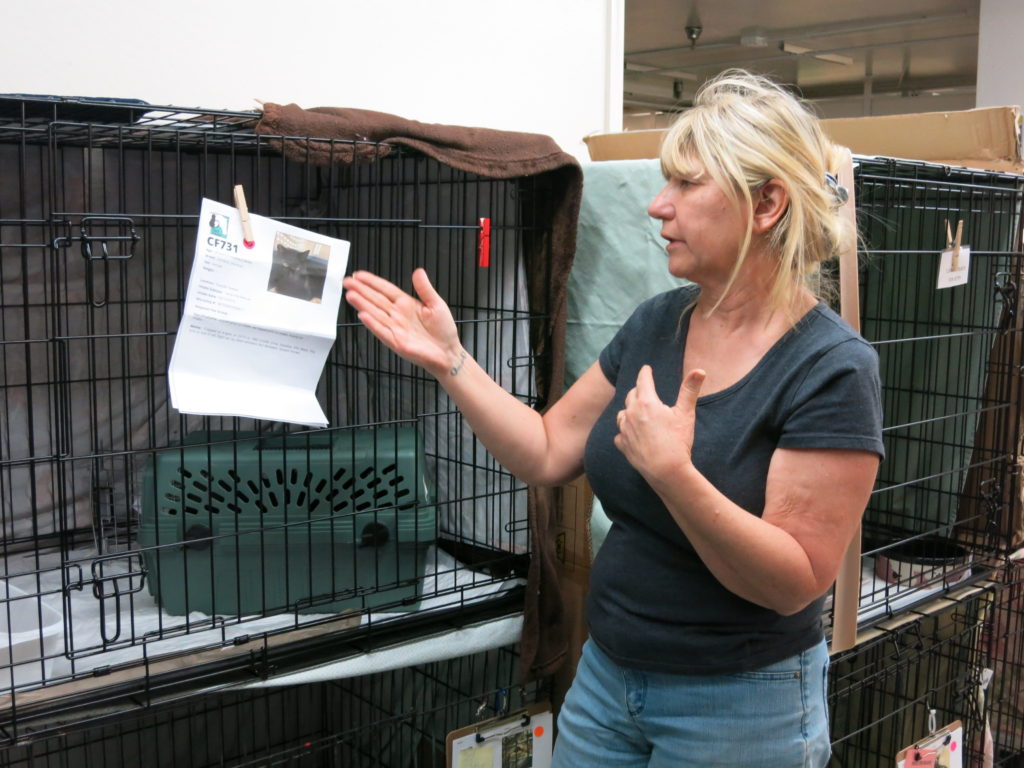Skyway Road hugs the city, folding around the Jarbo Gap.
The Pacific Gas and Electric Company had lines in this area, which surrounds Paradise, Calif. After humidity abated, dropping to 22 percent, and considering the wind gusts in a usually dry area, the investor-owned utility, who provides natural gas and electricity to most Northern Californians, could’ve preemptively shut down power for only the second time in its history. Instead, they refused to, and California suffered its deadliest wildfire ever.
Though blackened trees are still abundant, scorched cars still form battalions in debris-ridden parking lots, and once-standing local businesses still appear swallowed by nature, Paradise’s retention rate, which typically oscillates between 15 and 25 percent, according to Tami Ritter, a Butte County Supervisor, is still unpredictable at this point.
The fervor in this environmental reclamation effort cannot be lost, as evidenced by the most recent incarnation of the town’s Gold Nugget Days, a tradition that was birthed 100 years after the 1859 finding of a 54-pound golden nugget.
Jeff Dailey, a recreation supervisor for the Paradise Recreation and Park District, coordinated the 2019 event, which included 65 local vendors selling everything from scarves to picture frames to baked treats — nobody set on dissolution, everybody plugged-in. Though this is a microcosm, populationally, of the city, the love for trade and camaraderie remains wholly actualized.
A middle-class dream, Paradise never expects to house a major business within its parameters.
There’s one Starbucks plucked downtown, on the main drag, which seems almost gaudy: a California fan palm surrounded by various fur and oak trees. Places like Paradise Bikes and Fir Street Gifts are present — not exactly Wal-Mart, whose potential existence has already been dissuaded by town officials, and another Amazon warehouse.

For the owner of Paradise Bikes, Rich Coglin, a Toyota Tacoma Double Cab was all it took. After selling his prized truck for nearly $14,000, he was able to open his shop, monopolizing the bike scene in the town — not that that was his intention. He was merely trying to fit into the unassuming landscape, provide a blue-collar service, unmitigatedly.
Though he, like very few, was able to keep his establishment, due to the aleatory, block-jumping nature of the Camp Fire.
On the morning of Nov. 8, after having been evacuated three times as a Paradise resident over the years, Coglin maintained the composure of a funambulist taking the final baby steps along high wire, as he stuffed his cat in a carrier, took two shirts, a computer tower and an envelope teeming with meaningful photographs.
Mirror this image with the executive pastor of Paradise Alliance Church, Tim Bolin, whose wife, Yvonne, was hanging around their house, helping her husband grapple with pictures, computers, blueprints and permit papers. The feeling is palpable, as one cannot help but insert themselves into the malaise, one in which exploding butane tanks are heard and orange, foggy mist is seen, amidst an early morning severely turned on its head. The two Bolins wound up bunking with one of their son’s friends, in a house teeming with humanity: 20 people, with 10 hounds to boot.

There seems to be little ego in Paradise — or nearby Chico, where many bunked up (including the Bolins, Coglin), and establishments, like the headquarters of Paradise Recreation and Park District, moved.
In a change of events, Paradise Alliance Church, one of the few operating churches in the area, has rerouted its expected usage, outside of typical Sunday service. Everything from Paradise Irrigation District meetings to community dinners, the latter of which have been hosted by Bolin’s son, Steve, have been held there.
“If Paradise is going to recover, grow and flourish without a community –that probably won’t happen,” said Steve Bolin. “So, we decided: let’s just start opening our doors, offering meals, offering coffee — whatever it is just to get people around the table to share experiences, share empathy.”
There also isn’t adequate plumbing to buttress a presumptuous, non-coffee-shop corporate giant, as there is no sewer, meaning that the town, one of the largest in this rare department west of the Mississippi, runs on septic tanks. Perhaps a treatment plan is on the way, or a sewage linkage with Chico, a city that plays the role of Paradise’s older sibling.
Perhaps, all the low-level complexes of Paradise poeticize a deeper point: that the people in the town are grounded — despite their domain existing on a slope.

The grit and improvisation, so strong it would match Coltrane, is exemplified in one, Jamie Kalanquin, who, between Thanksgiving and Christmas of this past year, made roughly 1,500 scarves, or 50 scarves per day, all in a makeshift craft studio. A handful of re-purchased machines and fabric, of which was partially purchased by a gift card provided by a friend, were, at that time, sprawled out her mother’s dining room table, while the surface used for cutting fabrics was an out-of-commission pool table, which was camouflaged by medium-density fibreboard.
“With the Camp Fire, there’s just so much support, people wanting to help and support my business,” said Kalanquin, who serves as the lone face of Thistle & Stitch, a company she conceived about six years ago. “When I was just ready to give up and be like, ‘Well, there goes everything I worked for,’ it was just the opposite.”
Supported by FieldHaven Feline Center and Alley Cat Allies, accomplices Joy Smith and Jennifer Petrushka overtook a warehouse, currently bereft of an operating thermostat and supported by beaucoup floor fans, with a single-minded passion of cats, knowing themselves how much domestic felines can morph, positively, one’s psyche. Outside the makeshift, non-profit establishment, there is a camper parked on gravel that has acted as a stopgap home for the two women: Smith visits her home once a week, while Petrushka hasn’t seen her house in two months.
Since Nov. 8, they’ve returned 800 cats to their rightful owners, and, though the procedure of drop-trapping cats near set-up feeding stations seems guerrilla, what Smith and Petrushka, and their respective organizations, have done since the Camp Fire is metaphorically ink a thick tale of derring-do.
Not everything is hunky-dory, as there remains a short supply of affordable housing and many one-time Paradise residents who have no desire to return to their old stomping grounds. The town toggles between ghost town and strong independent community. When just providing optics, though, the outlook cannot be confused: this seems to not be paradise lost; rather, it seems like Paradise is just coming into its own, unsheathing a more powerful development of itself beneath its ashes, over the once-trammeling effects of the fire.